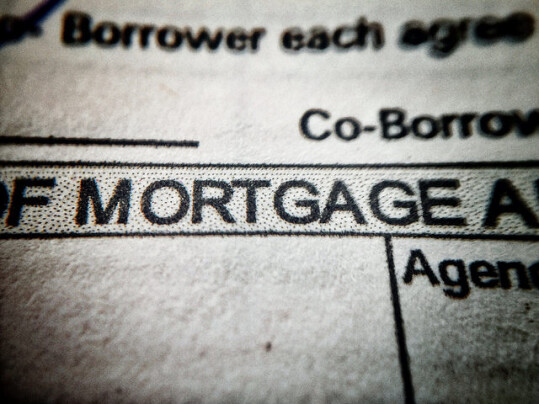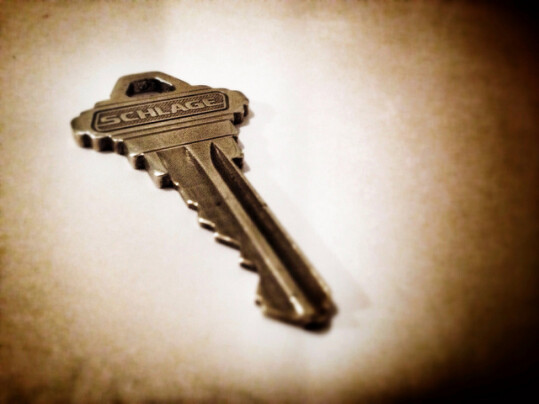Sometimes you have to move. Maybe you need a bigger house to accommodate a growing family. Maybe you need to move for a job. Whatever the case, there are certainly situations that make a move unavoidable. There are other times, however, that the decision to move isn’t quite as clear cut. In those cases, there are many factors that can influence whether, or when, you move. According to Fannie Mae’s Economic and Strategic Research Group, recent mortgage rate increases may be among them. Doug Duncan, Fannie Mae’s senior vice president and chief economist, says current homeowners who have locked in a historically low mortgage rate may now be reluctant to move since selling their home would mean giving up their rate. “Households with a 3-percent, 30-year fixed-rate mortgage are unlikely to give that up …” Duncan says. “We expect this so-called ‘lock-in’ effect to weigh on home sales.” Of course, whether or not the “lock-in” effect actually keeps homeowners from selling depends a lot on their particular situation and needs. But in a market with too few homes for sale, it’s definitely something to watch. (source)
Archive for April 2022
Will The “Lock-In” Effect Slow Home Sellers?
Builders Confident Amid Affordability Concerns
The National Association of Home Builders’ Housing Market Index is a monthly measure of how confident builders are in the market for new homes. The index is scored on a scale where any number above 50 indicates that more builders view conditions as good than poor. In April, the index scored a 77, which indicates builders remain optimistic about the market. However, though still high, it fell two points from the month before, as affordability concerns are rising. “Despite low existing inventory, builders report sales traffic and current sales conditions have declined to their lowest points since last summer as a sharp jump in mortgage rates and persistent supply chain disruptions continue to unsettle the housing market,” Jerry Konter, NAHB’s chairman said. Affordability conditions have gotten more challenging over the past year. But while the index components measuring current traffic and sales conditions both fell from the month before, the gauge of sales expectations for the next six months increased three points to 73. Overall, it seems builders are optimistic but cautiously watching how increasing home prices, material costs, and mortgage rates will affect buyer demand as the spring and summer sales season gets into gear. (source)
What Should Buyers Expect To Pay In Property Tax?
Home buyers typically know their price range and approximate mortgage rate. After all, without knowing those two things, it’d be much more difficult to calculate their potential monthly mortgage payment. But those aren’t the only two factors that determine how much owning a particular house will cost. For example, property tax is also a factor, and it can add a significant amount to your homeownership expenses. So what should prospective buyers expect to pay? Well, according to ATTOM Data Solutions’ most recent property tax analysis, the average annual tax on single-family homes in the U.S. was $3,785 last year. That’s up 1.8 percent from the year before – the second smallest increase in five years. Rick Sharga, executive vice president of market intelligence at ATTOM, says they’re likely to go up further this year. “The real surprise is that the tax increases weren’t higher, which suggests that tax assessments are lagging behind rising property values, and will likely continue to go up in 2022,” Sharga said. Of course, where you’re buying matters. Some neighborhoods have higher taxes than others, so prospective buyers should be sure to check their potential tax when calculating their costs before buying. (source)
How Your Tax Return Can Help Buy A Home
Nobody likes paying taxes. Just the thought of it can be stressful – especially if you’re among the filers who will owe money to the IRS. The good news, though, is the vast majority of us, rather than owing money, will receive a tax return. In fact, according to recent numbers, about 75 percent of us will get money back after filing our taxes. And the average return is pretty sizeable. In fact, it’s just over $3,500. So, if you’re among the tax filers who’s expecting a check from the IRS, what do you plan to do with it? One way to get the most out of your tax return is to put it toward buying a house. Coming up with a down payment can be difficult, and particularly in a housing market that’s seen home prices continue to climb. But with an average tax return, you could quickly get a lot closer to your goal. Think of it this way: If you’re buying a home at the current average price of around $375,000, a $3,500 tax return makes up about a fifth of what you’d need for a five percent down payment. That’s a pretty big boost to your down payment savings. Not to mention, if you use your tax return to buy a house, you’re investing the money and getting more out of it than you would’ve had you used it for a beach vacation or a luxury purchase. (source)
Demand For Home Purchase Loans Increases
According to the Mortgage Bankers Association’s Weekly Applications Survey, average mortgage rates increased last week. Rates moved higher for 30-year fixed-rate loans with both conforming and jumbo balances, loans backed by the Federal Housing Administration, and 15-year fixed-rate loans. But while increasing rates slowed refinance activity, demand for loans to buy homes still posted week-over-week gains. In fact, the purchase index rose 1 percent from one week earlier. Joel Kan, MBA’s associate vice president of economic and industry forecasting, said the improvement was a promising sign. “In a promising sign of strong purchase demand amidst affordability challenges, both conventional and government purchase applications increased,” Kan said. The MBA is forecasting slower mortgage originations this year, since inflation is likely to cause more aggressive action from the Federal Reserve. However, they still believe purchase originations will beat last year’s pace. In fact, according to their outlook, purchase loan demand will rise 4 percent this year. The MBA’s weekly survey has been conducted since 1990 and covers 75 percent of all retail residential mortgage applications. (source)
Location Tops List Of Buyers’ Criteria
It’s not surprising that home buyers would rank location as their top consideration when shopping for a home. After all, if your family, friends, and job are all in Dallas, finding the perfect house in San Diego doesn’t do you much good. In other words, few of us can say we don’t care at all where we live. So the fact that 88 percent of recently surveyed prospective home buyers said location was their most important criteria is no shocker. But what are some of the other factors that buyers listed as top priorities? Well, square footage was next on the list, with 73 percent saying they needed a house of a specific size. Similarly, the number of bedrooms and bathrooms also garnered a majority of respondents. Along with size and location, price was a popular choice. The list price of a house was named by 68 percent of home shoppers. Some of the remaining items participants cited included the style of the home, the size of the property, and utilities. Of course, any one of these factors could sway a buyer. They’re all fundamentally important. The real question for home buyers is where and how much you’re willing to compromise on any of them. (source)
Home Sellers Plan To List In Next Six Months
There’s a frustratingly low number of homes for sale these days. Low inventory has been pushing prices higher and making it harder for home buyers to find a home to buy. It hasn’t, though, kept buyers from trying. In fact, buyer demand remains high. And fortunately for those hopeful home shoppers, it looks like relief may be on the way. Not only has new residential construction been increasing lately, a recently released survey from the National Association of Realtors’ consumer website shows there’s also an increasing number of homeowners who say they plan to list their home for sale, and soon. According to survey results, 64 percent of prospective sellers say they plan to sell within the next six months. Among them, many say they’re ready to make a move because they’re looking for a home with different features than their current home or because they no longer need to live near their job. However, a hot seller’s market is also a big motivator, with profit ranking as the number one reason homeowners say they’re planning to list this year. (source)







